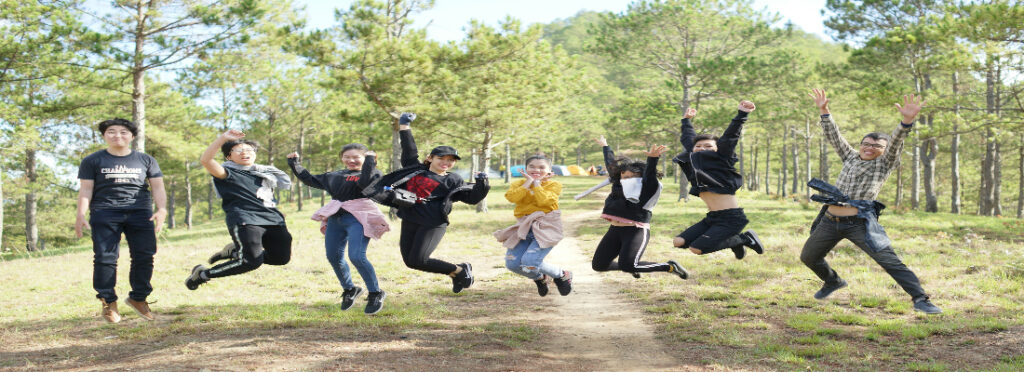
Self-confidence is one of the most important qualities a student can develop. It’s the belief in one’s abilities and the courage to face challenges without fear of failure. Confidence allows students to express themselves, take risks, and grow into well-rounded individuals. However, many students struggle with low self-confidence, which can impact their academic performance, friendships, and even mental health. Here’s a closer look at the importance of self-confidence and ways students can build it.
Why is Self-Confidence Important for Students?
- Improved Academic Performance
Confidence plays a key role in academic success. When students believe in their abilities, they’re more likely to participate in class, ask questions, and tackle difficult assignments. Confident students don’t let setbacks discourage them; instead, they use them as opportunities to learn and improve. - Better Social Skills
Self-confident students find it easier to make friends, speak up in social situations, and interact with peers. When students feel good about themselves, they’re more open to making connections and engaging in activities, which leads to better relationships and a sense of belonging. - Resilience and Positive Attitude
Confidence helps students bounce back from setbacks. Rather than fearing failure, confident students learn from their mistakes and keep trying. They approach challenges with a positive mindset, which helps them cope with stress and handle criticism constructively. - Enhanced Decision-Making Skills
Self-confidence allows students to make decisions without constantly doubting themselves. This quality is essential for developing independence and making good choices in both academic and personal matters.
Ways Students Can Build Self-Confidence
- Set Small, Achievable Goals
Confidence builds gradually, so it’s important to start small. Setting small, realistic goals helps students experience success step-by-step. These could be as simple as finishing a book, learning a new word every day, or participating in a school activity. Each success boosts confidence and motivates them to take on bigger challenges. - Focus on Strengths, Not Weaknesses
It’s common for students to focus on what they can’t do rather than what they can. Encouraging students to recognize their strengths helps them build confidence. Make a list of things they’re good at, whether it’s art, sports, problem-solving, or making friends, and remind them to focus on these positives. - Practice Self-Care
Physical well-being is closely linked to confidence. Getting enough sleep, eating nutritious foods, and exercising regularly all contribute to feeling good about oneself. When students feel physically well, they are more likely to feel emotionally strong and confident. - Learn to Accept Mistakes as Learning Opportunities
Mistakes are a natural part of learning. Instead of being discouraged by them, students should view mistakes as stepping stones to success. By understanding that failure is simply a part of growth, they’ll be less afraid to try new things, which is a huge confidence booster. - Surround Yourself with Positive People
The people around us have a big influence on how we see ourselves. Encourage students to spend time with friends, family members, and mentors who lift them up and believe in their potential. Positive support from others can remind them of their worth and encourage them to keep going. - Practice Positive Self-Talk
Our thoughts impact our confidence levels. Teaching students to replace negative thoughts with positive affirmations can help them feel better about themselves. Statements like “I can do this” or “I am capable” help shift their mindset from doubt to belief, building inner confidence over time. - Try New Things and Step Out of Your Comfort Zone
Confidence grows when students try new things. By stepping out of their comfort zone, they discover new abilities and develop resilience. Whether it’s trying out for a sports team, joining a club, or speaking in front of a class, each new experience helps them become more confident. - Celebrate Achievements, Big or Small
Celebrating even small accomplishments can boost confidence. When students recognize and celebrate their achievements, it reminds them of their progress and motivates them to continue growing. Rewards don’t have to be big—a simple “Well done!” or a high-five can go a long way.
Overcoming Self-Doubt
Self-doubt is a normal feeling, but it doesn’t have to control students’ lives. Here are a few tips to help students manage self-doubt:
- Remind Themselves of Past Successes: Thinking about times they succeeded in the past can help them realize they’re capable of facing new challenges.
- Break Down Big Tasks: Big tasks can feel overwhelming. Breaking them down into smaller, manageable steps makes it easier to approach them with confidence.
- Seek Guidance: Sometimes, talking to a teacher, parent, or counselor can provide a fresh perspective and support.
Conclusion
Building self-confidence is a journey that takes time, patience, and practice. By setting goals, focusing on strengths, and learning to embrace mistakes, students can develop the self-assurance they need to succeed academically, socially, and personally. Confidence is the foundation for a happy, fulfilled life, and with the right mindset and support, every student can learn to believe in themselves and achieve their full potential.



